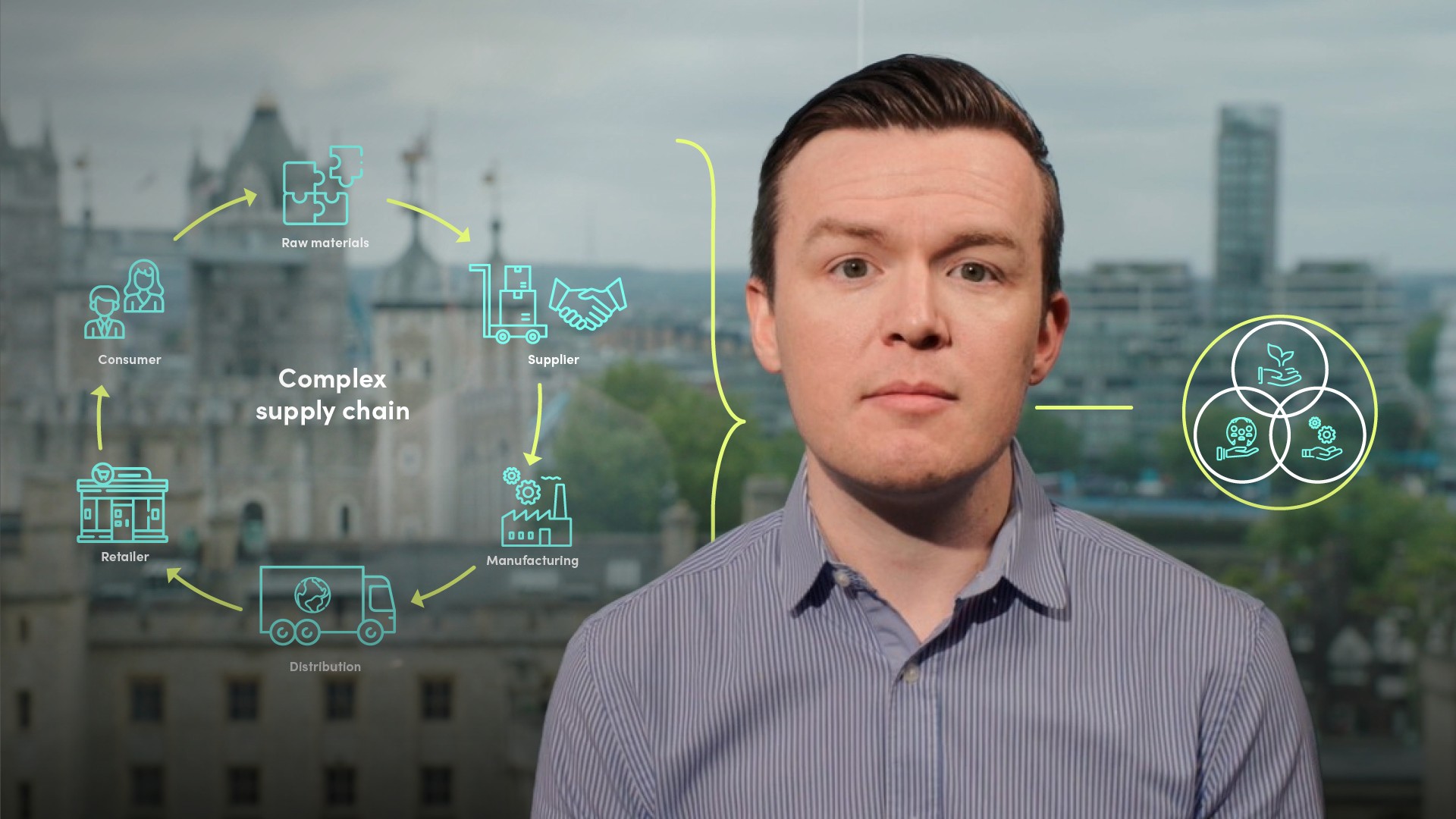
Sustainability Supply Chain Data

David Wynn
15 years: Sustainability
The concept of supply chain sustainability was almost unheard of just a few decades ago. Today, those responsible for a business' supply chain will pay acute attention to how it is managed. Join David as he gives us a closer look of what sustainability data buyers are gathering from suppliers and the drivers.
The concept of supply chain sustainability was almost unheard of just a few decades ago. Today, those responsible for a business' supply chain will pay acute attention to how it is managed. Join David as he gives us a closer look of what sustainability data buyers are gathering from suppliers and the drivers.
Subscribe to watch
Access this and all of the content on our platform by signing up for a 7-day free trial.

Sustainability Supply Chain Data
12 mins 23 secs
Key learning objectives:
Understand the key drivers for implementing a sustainable supply chain
Define today’s sustainable supply chain landscape
Identify the sustainability data that is relevant to collect
Identify the ESG metrics that a company might gather from suppliers
Outline the key challenges in collecting and reporting data
Overview:
Globalisation and the resultant exponential expansion of global supply chains in the past few decades has changed how supply chains are structured. Today, those responsible for a business’ supply chain will pay acute attention to how it is managed to ensure sustainable operations. Not reporting on this information and publicly failing the expectations of stakeholders can be detrimental or even terminal for a company’s right to operate. Specific environmental, social and governance metrics are increasingly being gathered from suppliers to inform the business decisions of buyers.
Subscribe to watch
Access this and all of the content on our platform by signing up for a 7-day free trial.
What is a ‘sustainable’ supply chain?
Organisations today are increasingly pushing sustainability through their supply chains to assess suppliers on their commitments to being responsible businesses. Organizations are also embedding sustainability into the supplier assessment of their RFPs and establishing a “tone from the top”. Sustainable supply chains are more responsive in times of stress or crisis with communication pathways and information sharing already in place. They are also more transparent ensuring continued supply through geo-political issues, natural disasters and times of stress.
What are the drivers for a company to look at supply chain sustainability?
- Reducing a company’s environmental impact
- Develop new partnerships
- Win new business
- Protection against reputation damage
- Establishing a resilient supply chain
What sustainability data is relevant to collect?
Demonstrating a sustainable supply chain will mean different things for different organizations and sectors and as a result require the gathering of different data points. As with any corporate sustainability reporting, the principles of materiality and stakeholder engagement are key to underpinning the relevance and value of data that is collected. Broadly speaking, data points that might be requested from suppliers can be grouped into environmental, social and governance buckets, termed ESG data.
Subscribe to watch
Access this and all of the content on our platform by signing up for a 7-day free trial.

David Wynn
There are no available Videos from "David Wynn"





























